Thursdays II
Movies as Birth Control: Creepy Kids, Insane Infants, and Problem Pregnancies
Programmed by Ursula Wagner
The films in this series span several decades' worth of our anxieties about reproduction. Each one--be it an experimental cult classic like David Lynch's Eraserhead, a body horror gorefest like David Cronenberg's The Brood, or a top-grossing teen megahit like Twilight: Breaking Dawn--explores deep issues at its heart. Filmmakers like Lynch and Cronenberg are open about having written these scripts as a way of confronting their own fears around marriage and childrearing. They acknowledge that parenting is scary, kids can be creepy, and pregnancy is dangerous and weird. You essentially have a parasite growing in your body, slowly crushing your organs, and threatening your health and life for nine months. And once the baby arrives, you can't exactly give it back, no matter what it's like. All of this takes on an especially terrifying resonance as states increasingly leave women with no choice but to carry out their pregnancies.
If movies soon become our only accessible means of birth control, these films should get us off to a good start. In them, the real-life horrors of parenthood manifest cinematically as vengeful ghost children (Kill, Baby, Kill and The Orphanage), demon spawn (The Omen), realistic sociopaths (The Bad Seed and We Need to Talk About Kevin), supernatural twins (The Other), or simply bizarre means of reproduction (Evolution).
Reviews for these films often include descriptors like "the best reason to get your tubes tied!" Consider booking your appointment now.
1/9/2020 @ 9:30 PM
Eraserhead
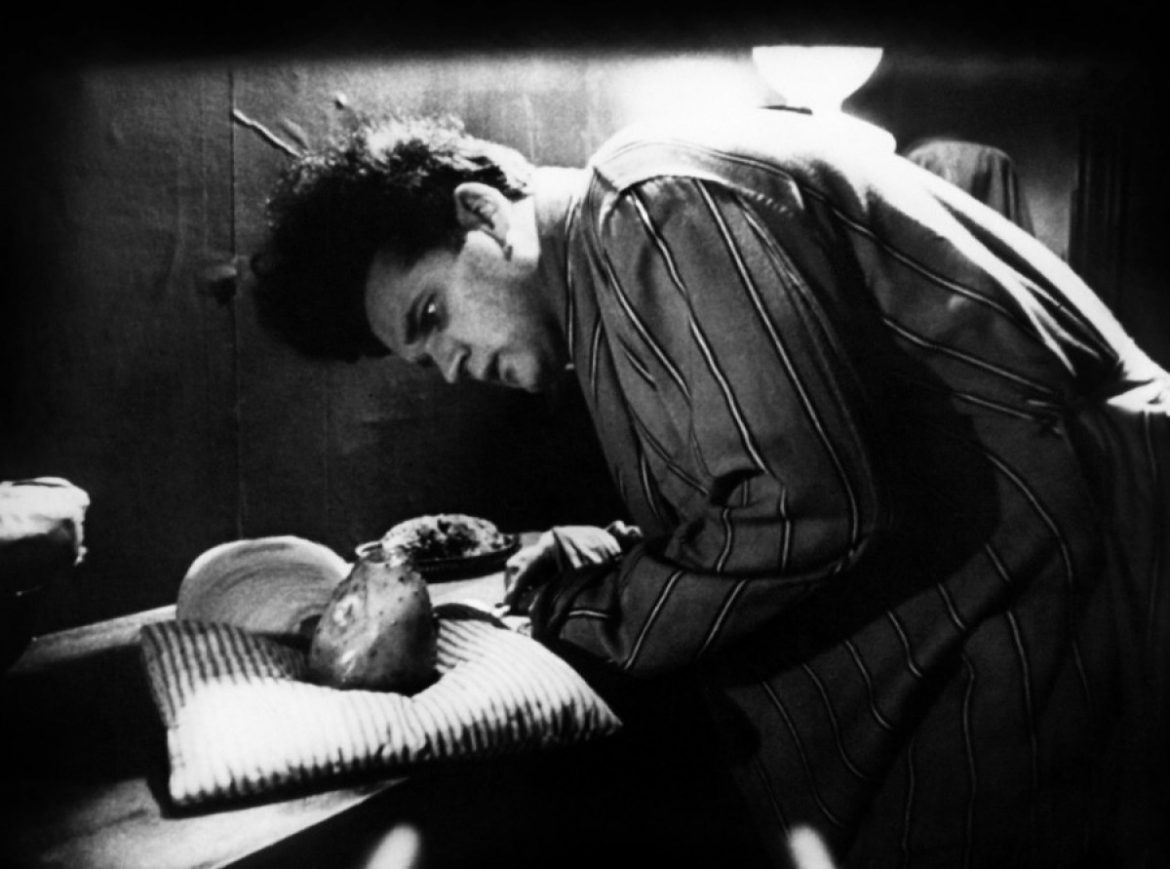
(David Lynch, 1977) · Lynch tagged his first feature as "a dream of dark and troubling things," reportedly born of his fears around his own new baby's birth defects. Henry (Jack Nance) learns from the mother of his girlfriend, Mary X, that she has had a baby. Mary protests, "They're still not sure it is a baby!" Soon we see why. Surreal images abound in this experimental body horror: a woman who lives in the radiator, a "man-made" chicken, sperm-like creatures everywhere and, of course, a head being turned into erasers.
runtime: 89m format: DCP
1/16/2020 @ 9:30 PM
Kill, Baby, Kill!
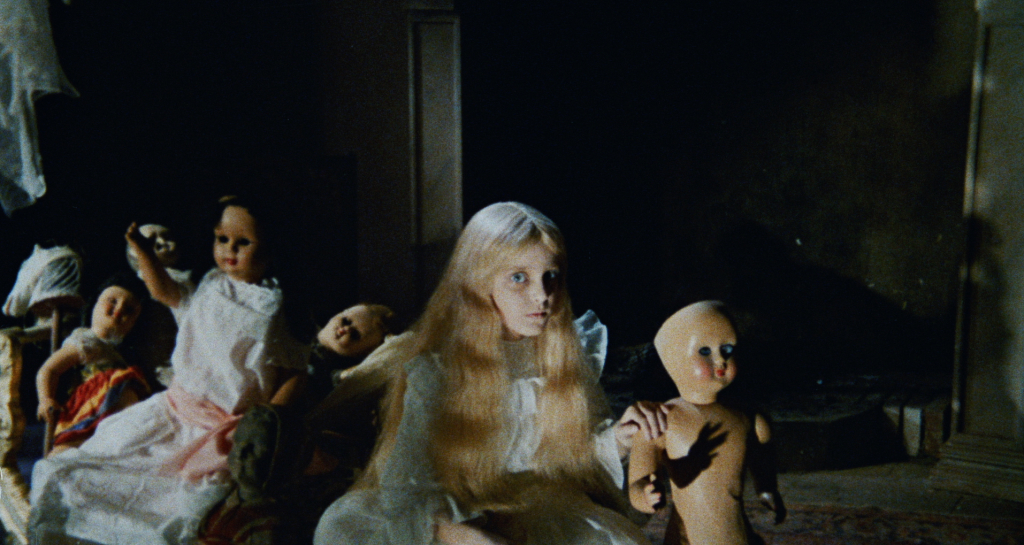
(Mario Bava, 1966) · A giggling, pretty, blond girl in a white lace dress--we instantly recognize her as an unnerving icon of evil, but Bava is one of the pioneering directors we can thank for that knowledge. The girl in question is a ghost allegedly responsible for a rash of mysterious deaths in a Transylvanian village. Naturally, a sophisticated doctor comes to investigate, scoffing at the villagers' superstitions. These classic Gothic elements combine with trippy effects to create a uniquely haunting horror.
runtime: 83m format: DCP
1/23/2020 @ 9:30 PM
The Other
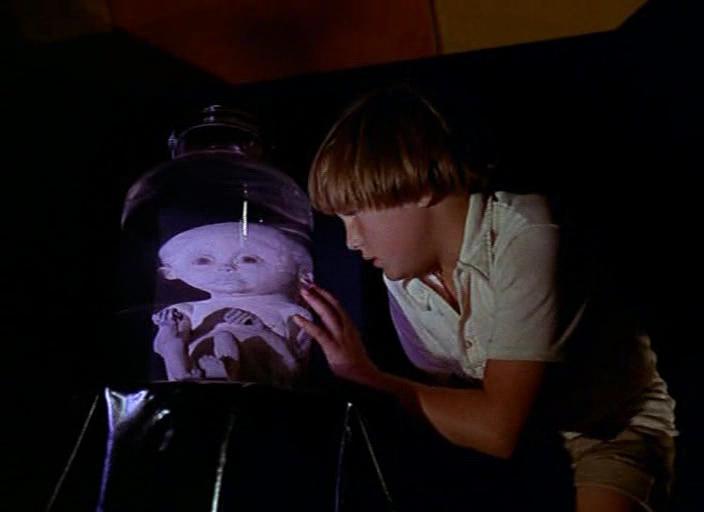
(Robert Mulligan, 1972) · Twin boys Niles and Holland are enjoying summer on the family farm in New England--sneaking into the cellar where their father recently died, astral-projecting into other beings, and leaving a trail of fatal accidents in their wake--normal kid stuff! A gothic grotesqueness permeates the idyllic setting, and Roger Ebert notes: "The movie isn't scary in the usual horror-film way, but because Niles is such a creep." Watch for Uta Hagen as their loving grandmother, and a very young John Ritter.
runtime: 108m format: DCP
1/30/2020 @ 9:30 PM
The Omen
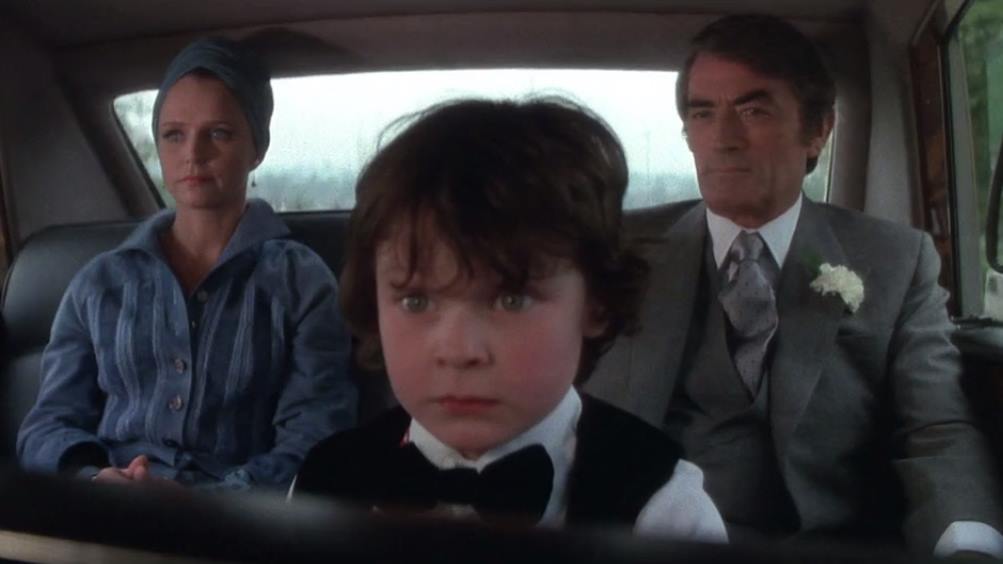
(Richard Donner, 1976) · If the hospital informs you that the baby your wife just gave birth to has died, you should probably just tell your wife about it rather than letting the chaplain convince you to secretly swap in another baby he happens to have on hand. Because if that baby is the Antichrist, that’s on you. This is the lesson of The Omen—one that Gregory Peck, the credulous father, takes too long to learn. Jerry Goldsmith’s chilling score sets the mood; it won him his only Oscar and includes the theme song “Ave Satani.”
runtime: 111m format: DCP
2/6/2020 @ 9:30 PM
The Bad Seed
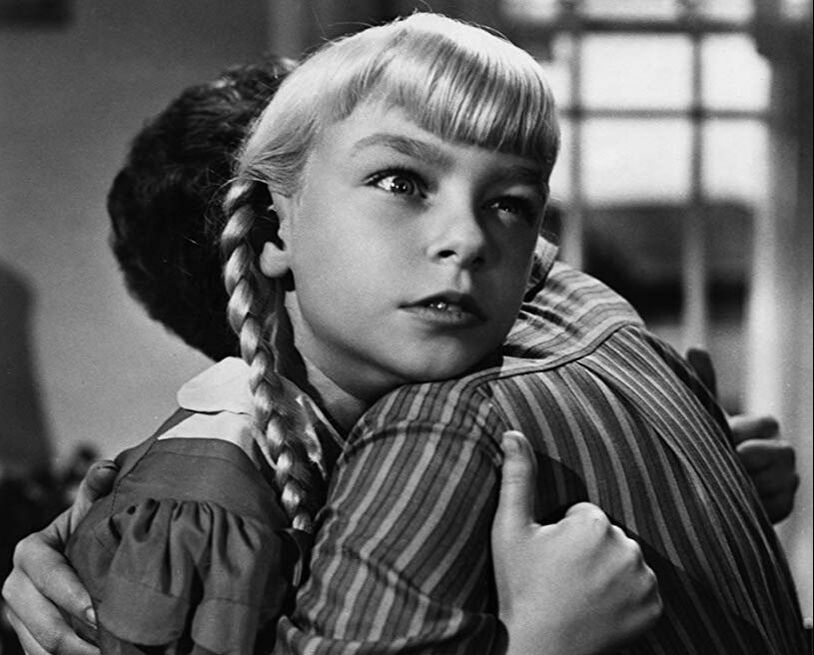
(Mervyn LeRoy, 1956) · Decades ahead of its time, this movie kicked off the whole "creepy kid" genre. Rhoda Penrose is the epitome of a good little girl: her crisp pinafore and blond braids signal both innocence and youth. But her eyes are evil. There's nothing supernatural here, she's simply an eight-year-old psychopath. Dated in its psychology, the movie still packs a punch. Its billing as "Adults Only" helped it become one of 1956's top-grossing films, and all of the three lead actresses earned Oscar nods.
runtime: 129m format: 35mm
2/13/2020 @ 9:30 PM
The Brood
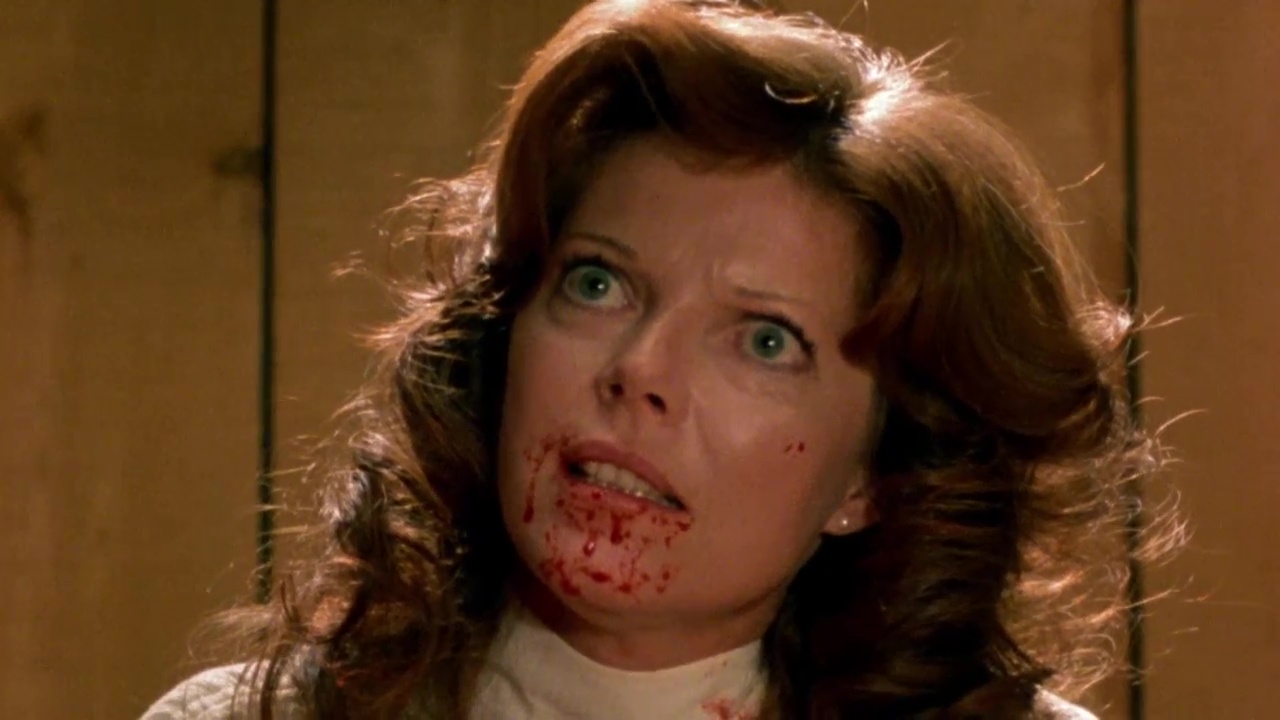
(David Cronenberg, 1979) · "Psychoplasmic" therapist Dr. Raglan (Oliver Reed) is treating Nola (Samantha Eggar), who is in a bitter custody battle for her daughter and feels mistreated from all sides. Soon, those who have hurt Nola come under attack from small subhuman beings, who seem to be literally born of her rage. Cronenberg used body horror to tell the story of his own divorce and fears about parenthood, but also in reaction to the idealized view of divorce he was anticipating from Kramer vs. Kramer that same year.
runtime: 92m format: 35mm
2/20/2020 @ 9:30 PM
The Orphanage
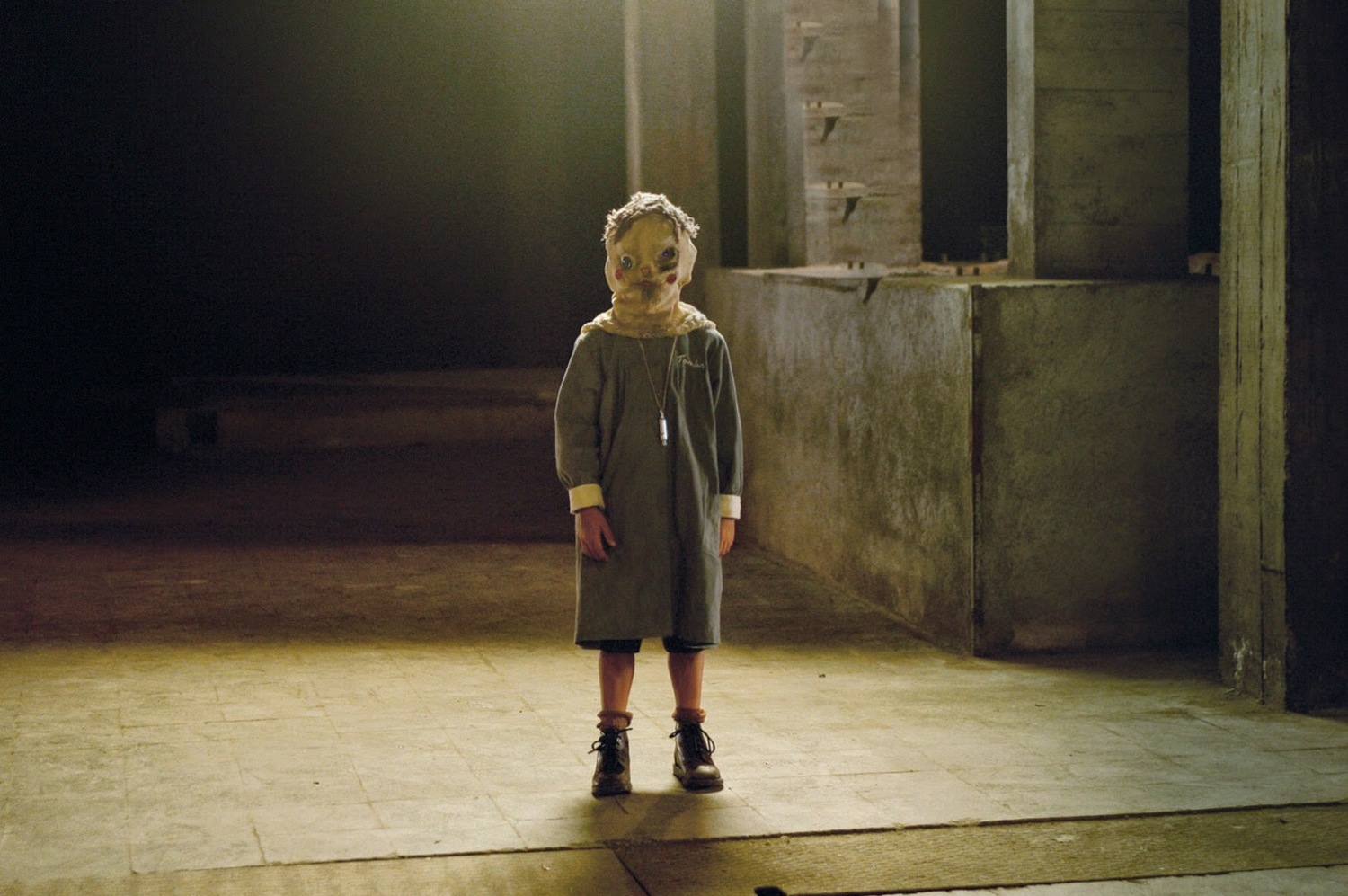
(J.A. Bayona, 2007) · Laura (Belén Rueda) returns with her young son to the now-empty orphanage she was once adopted from. She begins rehabbing it into a home for special needs children, but her work is soon disrupted as her son's supposedly imaginary friends seem to be haunting the place. Light on cheap scares and heavy on atmosphere, this eerie ghost story was Bayona's love letter (co-signed by producer Guillermo del Toro) to 1970s Spanish cinema. It garnered a 10 minute standing ovation at Cannes and 7 Goya awards.
runtime: 105m format: 35mm
2/27/2020 @ 9:30 PM
Evolution
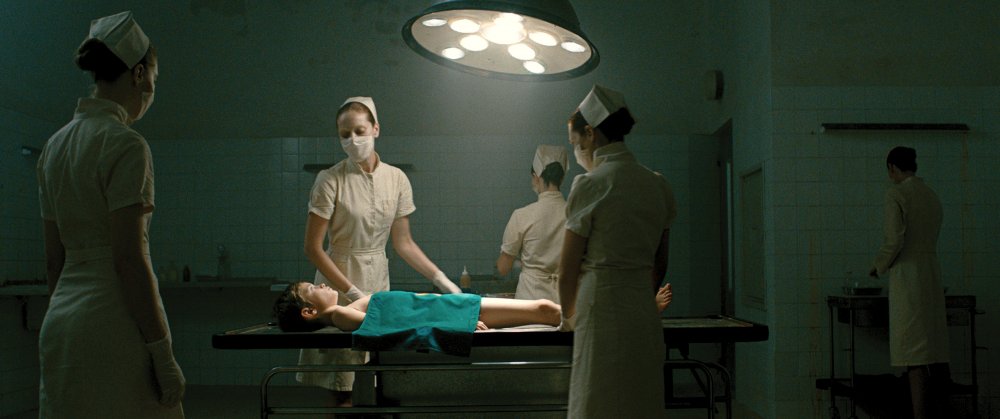
(Lucile Hadžihalilović, 2015) · On an unnamed island where all children are boys, the only adults are the pallid, eyebrowless women who take care of them. All seems peaceful until one boy thinks he sees another's corpse in the water and begins questioning what the "mothers" are up to. Hadžihalilović tells her atmospheric sci-fi horror story mostly through eerie, unsettling images (filmed with award-winning cinematography) that offer clues to the mystery of the boys' origins and their purpose on this island.
runtime: 81m format: DCP
3/5/2020 @ 9:30 PM
We Need To Talk About Kevin
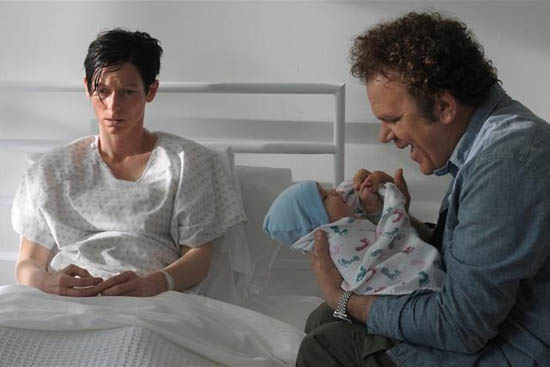
(Lynne Ramsay, 2011) · Teenage Kevin (Ezra Miller) sits in prison after committing a school massacre. His mother Eva (Tilda Swinton) examines her life with him in flashbacks leading up to the tragedy. Horror that is realistic--and hits closer to home than ever--may be the most chilling. Adapting Lionel Shriver’s novel, writer-director Ramsay doesn't exploit her subject matter. She empathically portrays Eva's difficulty with motherhood, exploring, without blame or moralization, what might lead to a sociopathic child.
runtime: 112m format: 35mm
3/12/2020 @ 9:30 PM
Twilight Saga: Breaking Dawn Part I
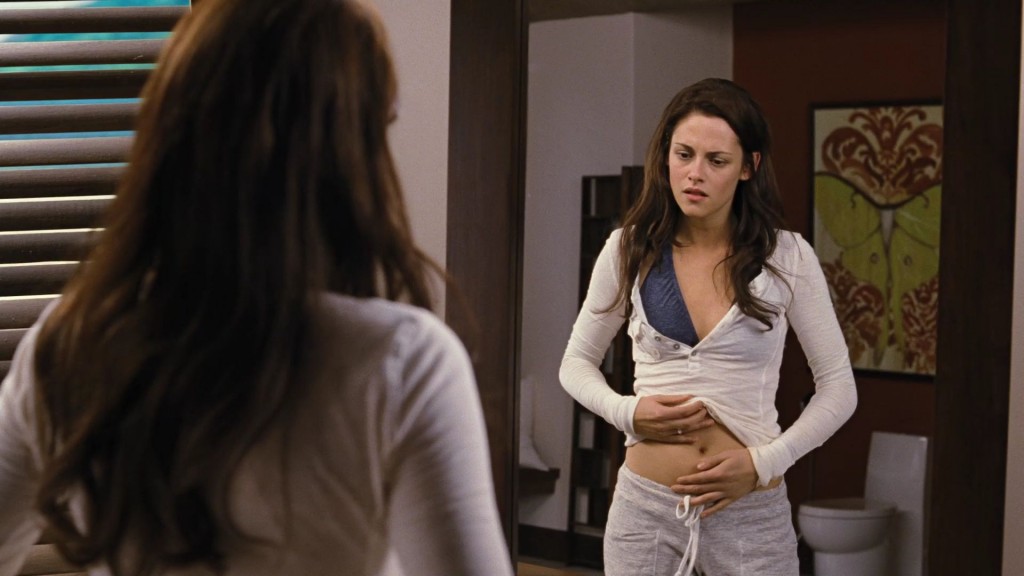
(Bill Condon, 2011) · The fourth installment of Twilight sees Bella (Kristen Stewart) finally marrying her vampire lover Edward (Robert Pattinson). Their bed-breaking honeymoon gets Bella pregnant with a half-vamp, which really gets the hackles of the local werewolves up. Manohla Dargis called Bella's pregnancy "so palpably disturbing that it might cause David Cronenberg, the master of body horror, to wince." The child(?)birth scene is shot from Bella's perspective and reportedly caused seizures in some viewers. And it's all PG-13!
runtime: 117m format: 35mm



